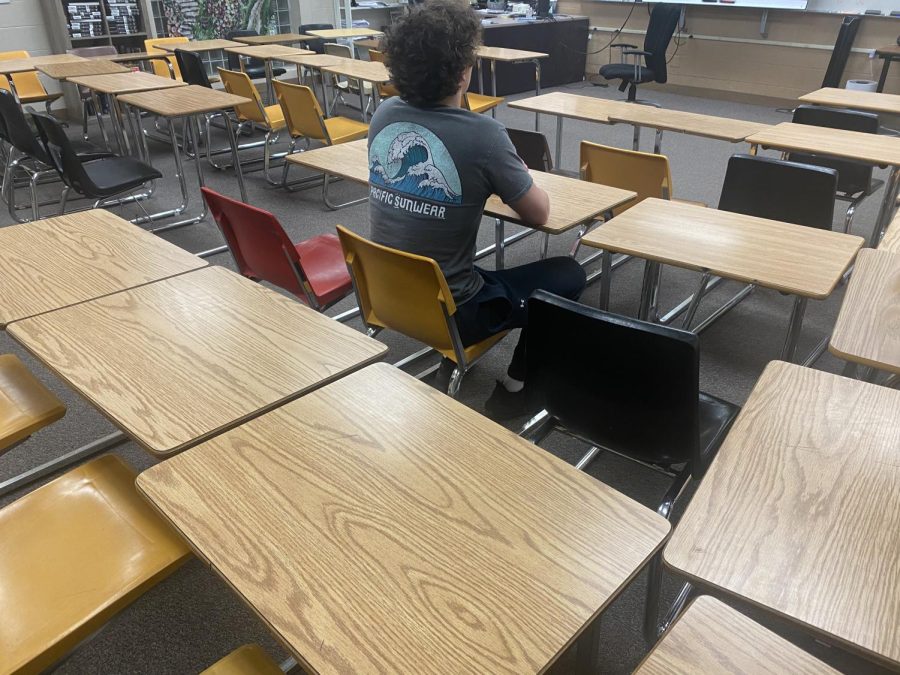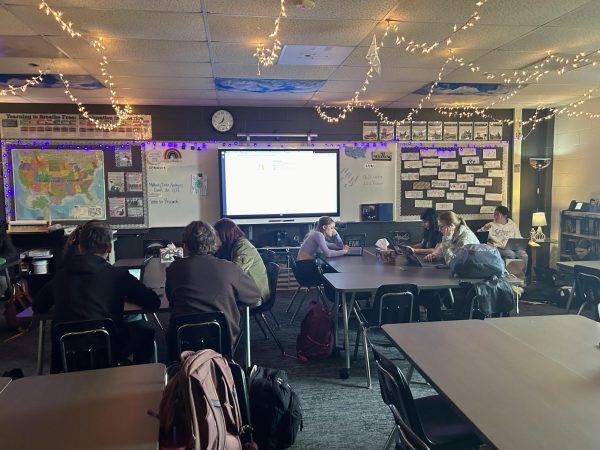Major Changes Occur at School; An Academic Pandemic
Empty desks can be a common site during the school day at Adams.
As the Covid-19 pandemic settles down from its intense and frightening peak, economists predicted a “return to normal.” However, this has not been the case. Many people are not returning to work, many are working from home, and many are taking time to find a new path in life. As a result, companies are re-evaluating what needs to change in the workplace to retain talent, and economists are referring to this unexpected phenomenon as The Great Resignation.
The Great Resignation is a well-documented and very public occurrence. But, what many people are not discussing is that something similar is happening at high schools across America. Like a behavioral pandemic after the COVID pandemic, there seem to be more unmotivated students than ever, and Adams is no exception.
At Adams, there is a huge attendance problem that is being attributed to the overall lack of interest in attending live instruction. On any given day, a typical classroom could be missing up to half of the students. Adams students view some classes as unnecessary, leading to them picking and choosing which to attend.
“It depends on the class. Upperclassmen come less and classes in the morning are typically worse, but attendance is definitely worse now than it was before COVID for all grade levels,” said Adams Science teacher, Jerome Bondy.
Grade averages and course rigor have dropped significantly, too. Many are also attributing this phenomenon to the years spent online and in a hybrid learning format, where students got comfortable having a light workload.
“I usually skip a class and a half to two classes a day,” said an Adams student who wished to remain anonymous. “They’re useless classes.”
“Because of the pandemic, you could turn things in late, and the overall standards dropped. So, the rigor has dropped, which I don’t think is a good thing in the long run,” said an Adams teacher who also wished to remain anonymous.
These changes are affecting all departments, and teachers are unsure of what to do.
“We have lulled ourselves into a state of mediocrity,” said Adams Economic teacher Timothy Mullins. “Young adults need to learn, as they get older, that there are repercussions for their actions. And, if nobody is going to hold them to that, why should they try to strive for better? That falls on us to guide them.”
Many teachers, like Mullins, observe what is happening and conclude this trend is a problem that needs solving. Mullins does have a valid argument as many students may need or prefer some sort of a structured educational environment, but this may not be the case for all students.
If students are skipping class because they find it easy to learn the material independently, is that truly a problem? It is worth considering that some significant changes could be made to adapt to a post-pandemic world. Businesses in the global economy are already making extensive changes to adapt to new perspectives, and they are receiving positive results.
Working from home is no longer uncommon for adults, and work ethic does not seem to be dropping among individuals who choose to do so. In school, with Google Classroom prevalent in nearly every class, students can keep up with various courses and view course materials without having attended in-person instruction. Perhaps, some students can thrive under a new system that supports the option to study from home.
Shorter workweeks are also being used at businesses around the world. Companies find that more days off result in higher productivity while employees are present. If the free market has found success in this practice, shortening the school week is also something to consider.
Of course, these changes may sound absurd initially. The current education system has been in place for decades with no major structural change. But, that could be part of the problem. It is entirely possible that the system has become antiquated altogether.
So, are students simply lazy post-pandemic, or are they ahead of their time and ready for a change? The answer is unclear, but the question needs to be considered. The answer to this question could define the education of a generation.










